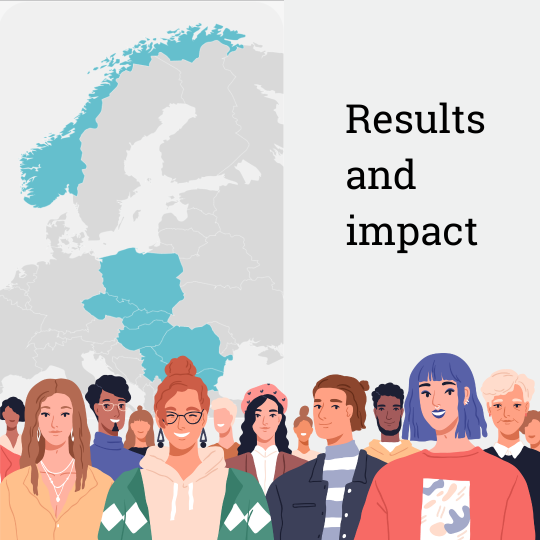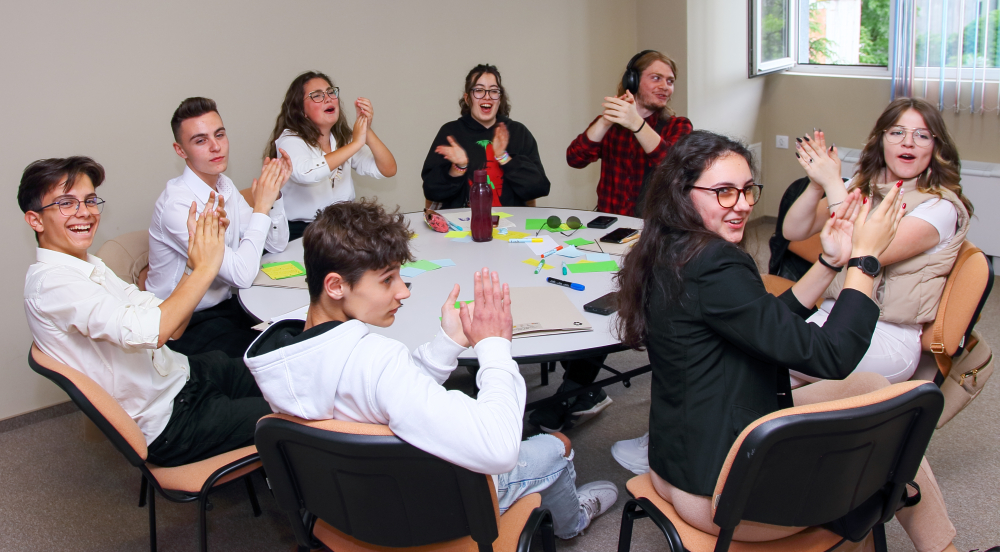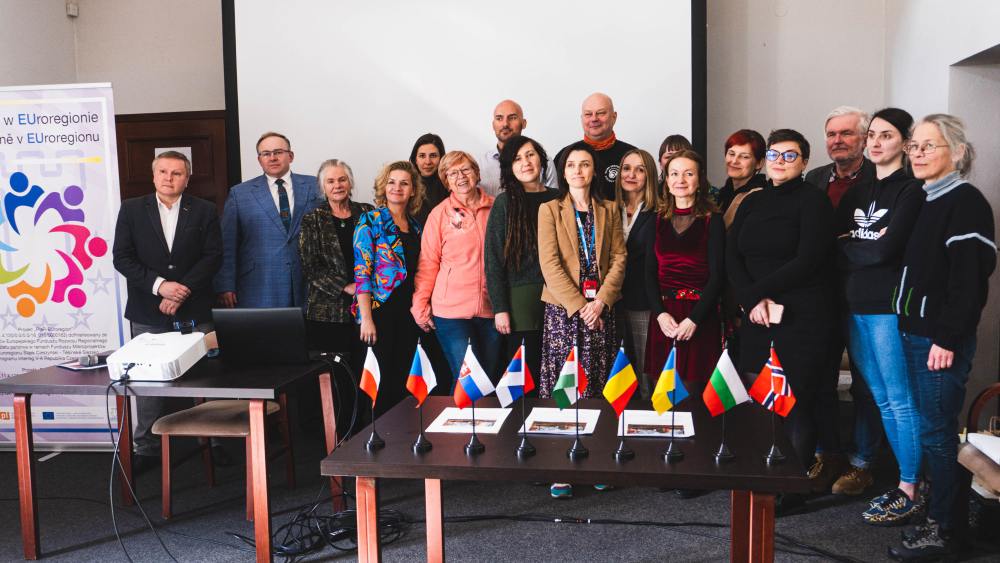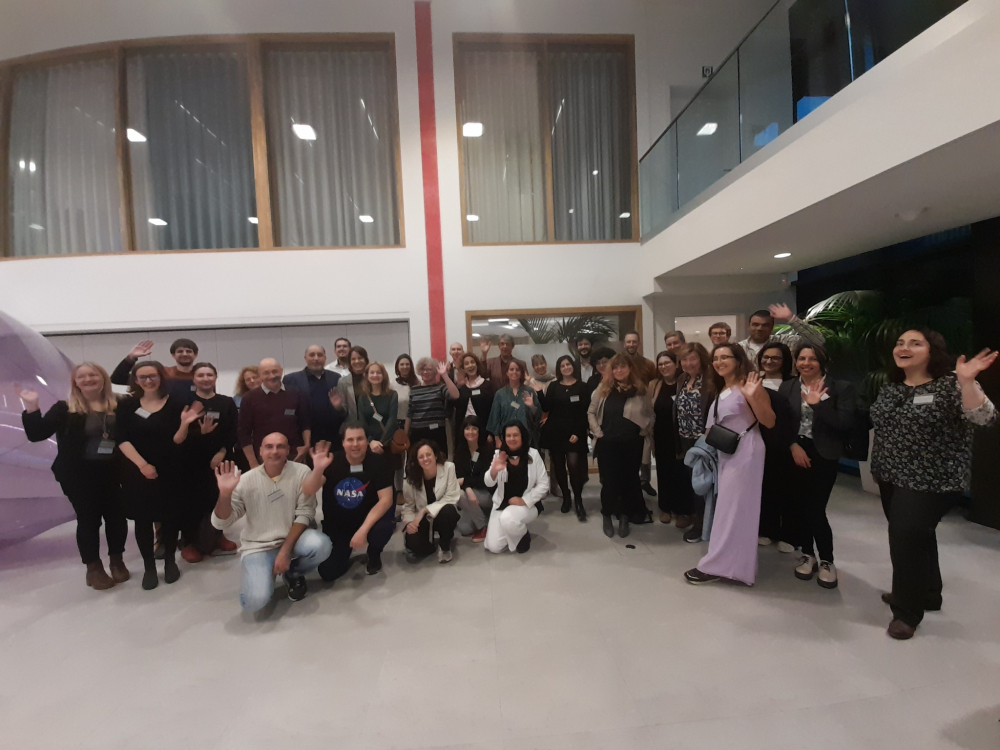
Our project “Reclaim Our Civil Space!” came to life to address the trends of democratic backsliding and shrinking civic space observed particularly in Central and South-eastern Europe. We have been working for the past 3 years with 10 partners from Poland, the Czech Republic, Slovakia, Hungary, Romania, Bulgaria, Serbia and Norway (as an expert partner) to empower, engage, protect and support our civil societies.
Our activities were planned on the local, regional and European level.
Local activities
We aimed at broadening the grassroots basis of civil society with training, workshops and mentoring for local organizations. These programmes in each participating country were developed independently, designed upon their previous experiences and tailor-made by our project partners to fit the national context.
Our focus group evaluations showed that the civic groups we reached established new contacts, got to know organizations with similar goals and values, and were able to share their challenges and exchange ideas on resolving them. Some national programmes helped them in identifying suitable sources of funding and strengthened their organizational capacities, improving their sustainability. Other important longterm impacts across the participating countries are the new cooperation and joint projects, and the establishment of new civil society organizations as a result of the local activities of the project. (Most partners were able to help more organisations with more trainings than originally planned thanks to the cost savings made in the first 1.5 years due to the Covid-19 restrictions which forced us to move our capacity building online).
Best practice on the local level: Involving young people by the Bulgarian Environmental Partnership Foundation. Originally planned as a series of consultations for established youth groups/CSOs, the project evolved to respond and meet capacity building needs of young people through a series of activities for school students to help them become aware, active and organized. The subsequent activities were defined by participants at youth meetings (e.g. workshops, debates, fundraising) and the Youth Conference Bulgaria was successfully organized.

Regional activities
We organized 8 cross-border events with participants from at least 3-4 countries from across the region to connect and facilitate co-operation with one another, covering the following topics:
-
Vivid Rural Areas (the Czech Republic)
-
Human Forum - Human Rights and Democracy (Slovakia)
-
Truths that are denied - challenges of post-conflict societies (Serbia)
-
Urban Areas as Space for Implementation of Sustainable Policies (Bulgaria)
-
Protected Areas and Biodiversity (Romania)
-
Local Communities for Heritage: Good Practices in Central Europe (Poland
-
New Media and Civil Society Organizations (Romania)
-
Youth workshop series on first vote, sustainable tourism and democratic schools (online)
Best practice on the regional level:
-
Partnership Academy - Fundusz Partnerstwa (Poland): was initially an environmental programme for local community leaders, but soon turned into a capacity building academy for 40 civil society organizations and 20 local governments from all over across Poland about natural and cultural revitalisation of the communities, human rights, engagement of women and minorities, advocacy, communication and cross-sector partnerships. Among the main results were the intensive networking (study trips, joint proposals, fundraising); the “Declaration on the Role of Ecotourism in the Protection and Preservation of Natural and Cultural Heritage” signed by several dozen organisations from across the region; sharing the know-how of the Academy methods and approach to the Czech Republic and a joint application to the International Visegrad Fund; the birth of the Partnership Academy brand and growing interest from civil society organizations in other countries.
-
Civic Startups - Civil Society Development Foundation (Romania): was a 9-month capacity building programme for 36 citizens’ groups and grassroots CSOs in early development stages, from all over Romania, in 2 cohorts with webinars, trainings and mentoring (legal and financial assistance, internal governance, fundraising, communication, advocacy and public policies). The programme resulted in an intensive networking of groups active in different fields, and one of its main achievements was when the two cohorts united in a peer-support and resource-sharing community.

Activities on the EU level
We developed together a set of recommendations and advocated for the adoption of a comprehensive European civil society strategy to help create an enabling environment for our civil societies.
We organized 4 international conferences in Brussels, Budapest and Prague on the matter, addressing challenges, such as democratic backsliding, weakening of rule of law and shrinking civic space. A civil society strategy should acknowledge the role of CSOs in upholding European values, review ongoing initiatives and processes that have a relevance to civil society, identify gaps and shortcomings and integrate existing, new and future tools to defend and expand civil space. Hence our recommendations concern 6 major topics: 1) The right to association 2) The right to peaceful assembly 3) The right to operate free from unwarranted state interference 4) The right to free expression 5) The right to cooperation and communication 6) The right to seek and secure resources.
There has been limited room for action, as civil society is largely a Member State competence, but thanks to the efforts of many for a more systematic approach, civil society is becoming more and more part of the agenda on the EU level. The initiative was echoed by EU civic networks, such as the European Civic Forum (of which Ökotárs Foundation became a full member during the project), in reports by Members of the European Parliament - Sergey Lagodinsky, Anna Donáth - and by the European Economic and Social Committee (Jean-Marc Roirant). The call for the strategy became a central demand of the joint civil society campaign towards the European elections. As one important result of all these efforts, it is now certain that the European Cross-Border Association directive is coming, helping civil society organizations to organize without obstacles within the EU!
Our activities on the local, regional and European level are all pointing towards the same goal: to build a democratic and enabling environment for civil society where people take action, get organized and advocate for their interests together freely, without fear or restrictions. Although this project has come to an end, the work goes on and we will do our best to reclaim our civil space!













